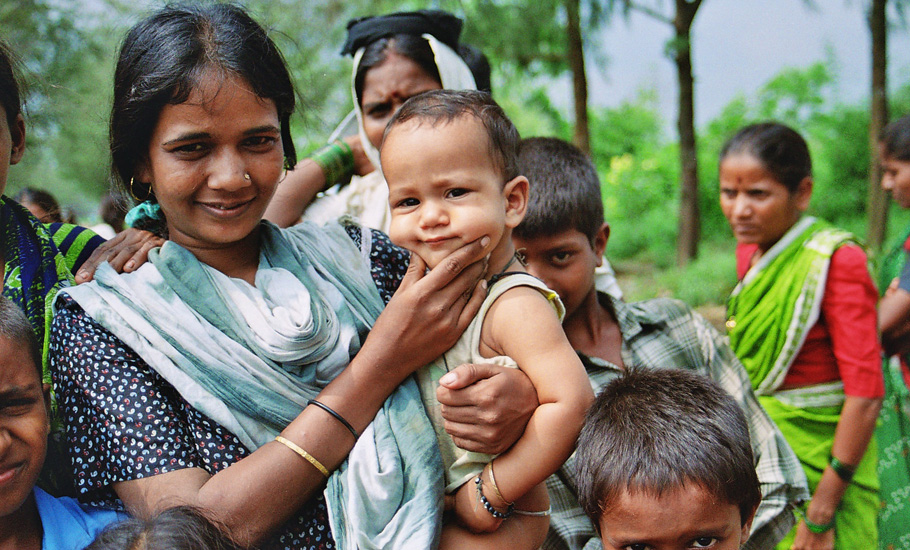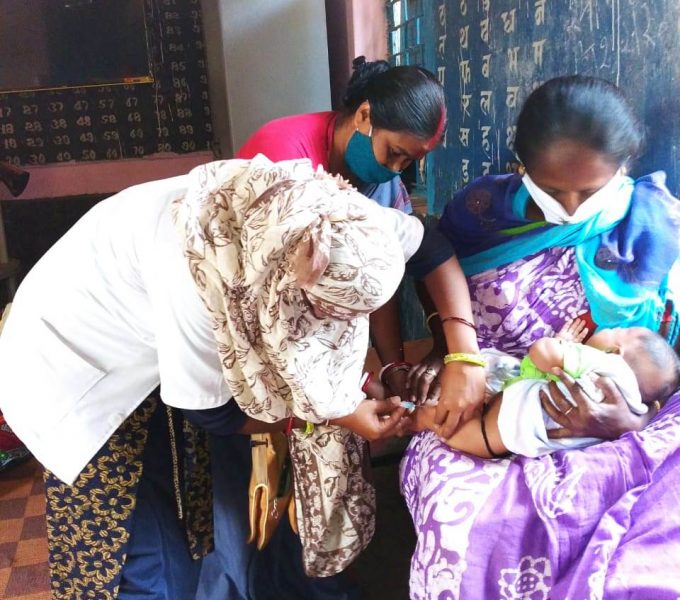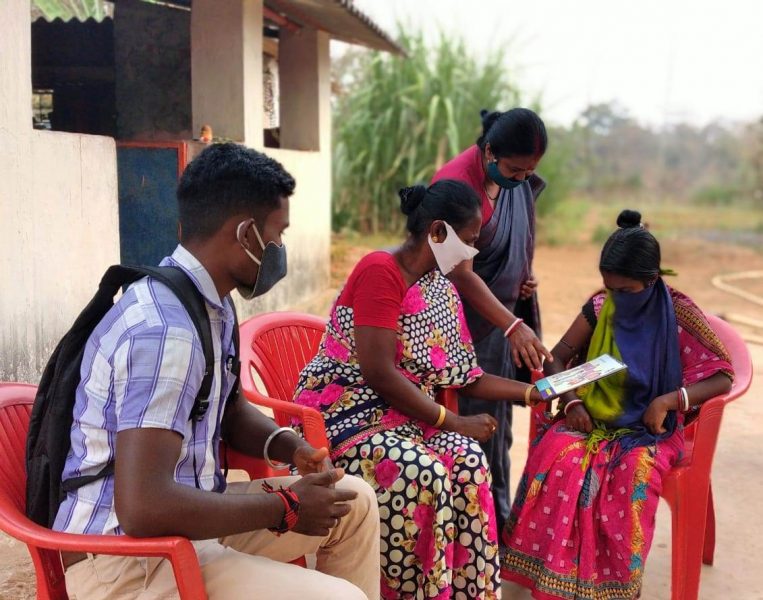
- Home
- News
- Analysis
- States
- Perspective
- Videos
- Education
- Entertainment
- Elections
- World Cup 2023
- Features
- Health
- Budget 2024-25
- Business
- Series
- NEET TANGLE
- Economy Series
- Earth Day
- Kashmir’s Frozen Turbulence
- India@75
- The legend of Ramjanmabhoomi
- Liberalisation@30
- How to tame a dragon
- Celebrating biodiversity
- Farm Matters
- 50 days of solitude
- Bringing Migrants Home
- Budget 2020
- Jharkhand Votes
- The Federal Investigates
- The Federal Impact
- Vanishing Sand
- Gandhi @ 150
- Andhra Today
- Field report
- Operation Gulmarg
- Pandemic @1 Mn in India
- The Federal Year-End
- The Zero Year
- Premium
- Science
- Brand studio
- Home
- NewsNews
- Analysis
- StatesStates
- PerspectivePerspective
- VideosVideos
- Entertainment
- ElectionsElections
- Sports
- Loading...
Sports - Features
- Budget 2024-25
- BusinessBusiness
- Premium
- Loading...
Premium

Grandmoms armed with drumsticks fight malnutrition in Chhattisgarh
With the help of UNICEF, the Chhattisgarh government launched ‘Bapi Na Uwat’, meaning grandmother’s wisdom, wherein the services of grandmothers are utilised to improve nutrition among children and lactating mothers.

At 50, ‘Bapi’ Somali has found a new purpose in life. Not too long ago, the grandmother from Chhattisgarh’s Parcheli village was leading an ordinary life, with most people around her hardly acknowledging her existence. All that changed one day when a few government officials reached her doorstep with a unique offer. To Somali’s surprise, they wanted her to share her ‘knowledge’...
At 50, ‘Bapi’ Somali has found a new purpose in life. Not too long ago, the grandmother from Chhattisgarh’s Parcheli village was leading an ordinary life, with most people around her hardly acknowledging her existence.
All that changed one day when a few government officials reached her doorstep with a unique offer. To Somali’s surprise, they wanted her to share her ‘knowledge’ with new and expectant mothers to combat malnutrition.
“Until then, no one had ever said that what I knew was of any value,” says Somali.
She instantly agreed to join the rest of the grandmothers (locally referred to as Bapi) that the state government has roped in to give a renewed push to its nutrition drive across Dantewada district.
With the help of UNICEF, the district administration has launched a programme called ‘Bapi Na Uwat’, meaning grandmother’s wisdom, across its 294 villages. Under the programme, launched in December last year, services of grandmothers are being utilised to reach out to tribal women to better explain to them the various nutritious needs of a growing child and lactating mothers.
“The idea behind the scheme is to utilise the wisdom of grandmothers. They are well respected in the community. We use them to speak to pregnant and lactating mothers on the issue of total child care, that also in their local dialect. Interpersonal communication is given emphasis here,” said Job Zachariah, chief of UNICEF, Chhattisgarh.
Somali and the rest of the squad are the latest entrants to Chhattisgarh’s long fight against malnutrition. Interestingly, much like the modest grandmothers, their main weapon of combat happens to be equally unassuming—the humble moringa leaves.
Thought for food
Moringa, or the drumstick, is called a miracle tree in Ayurveda. But little did one expect it to transform the health scenario of Chhattisgarh.
The story goes back to October 2, 2019—the 150th birth anniversary of Mahatma Gandhi.
A report of the National Health Family Survey had earlier that year tagged Chhattisgarh among the most malnourished states in India, citing that 37.7 per cent of its children in the age group of 0-5 years were malnourished. Simply put, 4,33,541 children in the age group were either too short or too thin for their age. The state’s naxal-affected tribal areas had the maximum number of what are called “stunted or wasted” (in official jargon) children.
Worse, during a drive conducted that year, it was found that 9.70 lakh children were malnourished in the state. The drive called ‘Vazan Tyohar’ or weight festival reached the conclusion after assessing indicators that included underweight, undernourished and stunted growth compared with ideal growth indices.
Nudged by the stark reality, chief minister Bhupesh Baghel launched a target-based intervention programme—‘Mukhyamantri Suposhan Yojana’—on the occasion of Gandhi Jayanti to make the state malnutrition-free within three years.

The project was initially introduced in some gram panchayats of Naxal-affected tribal-dominated districts in Bastar area. Later, it was implemented across the state.
The children between 6 and 54 months were identified as the target group. To look after their dietary needs, a weekly menu was prepared by nutritionists based on the requirement of the beneficiaries. The requirements were determined after monitoring the weight and height of the targeted children by a supervisor at every Anganwadi centre.
“One super food that has been mandatorily included in the diet of all beneficiaries was moringa leaves as well as drumstick-like seed pods of the tree,” said Divya Mishra, director of the women and child development department, Chhattisgarh.
The result is there for everyone to see. The number of malnourished children has declined by 32 per cent in the state since the launch of the drive, according to the latest findings of the state government’s ‘Vazan Tyohar’ released last month.
“The number of malnourished children came down from 4,33,541 children in January 2019 to 2,92,985 children as of May 2021. This means 1,40, 556 children, or nearly one-third of the January 2019 level, have recovered from malnutrition,” a state government release said.
The reduction rate is higher than the state average in many districts such as Kanker, Sukma, Raigarh, Bijapur, Durg, Gariaband and Janjgir-Champa.
The magic potion
According to the National Nutrient database of the United States Department of Agriculture (USDA), moringa pods (drumstick) and leaves are rich sources of vitamins, minerals, protein, dietary fibre, carbohydrates among others.
It says 100 grams of pods provide 2.10 gram of protein—that is 4 per cent of an individual’s daily-recommended intake of protein. The same amount of moringa leaves give 9.40 grams or 17 per cent of daily required levels of protein.
Similarly, 100 grams each of pods and leaves of a moringa tree provide 2.5 per cent and 252 per cent daily required levels of vitamin-A respectively. They are also sources of 235 per cent and 86 per cent of daily required levels of vitamin-C respectively. The list of benefits goes on.
To promote the magical tree, the Chhattisgarh government launched a special plantation drive. The state’s principal chief conservator of forest Rakesh Chaturvedi said around 3.5 lakh saplings were planted in schools and anganwadi centres since last year.
The state government is also encouraging plantation of moringa trees in ‘Poshan Vatikas’ , the kitchen gardens developed in tribal areas of the state as an extension of the drive against malnutrition.
“We are growing drumsticks, green leafy vegetables and fruit trees in the Poshan Vatikas. We are promoting daily use of moringa extracts ,” Mishra said.
The government officials believe the health scheme is also having a positive impact in curbing Maoist influence in tribal districts.

The many benefits
Recent surveys on status of Maoist influence in villages carried out by the police in Maoist-affected Dantewada district in south Chhattisgarh showed a positive result.
The survey was done in 149 village panchayats of the district in January. It was found that while the Maoist influence was still strong in 33 panchayats, it was ebbing in 42 of them. The situation was normal in 74 other panchayats. According to the status of influence, the panchayats were colour coded as red, yellow and green. A similar survey in these panchayats in June showed the number of red villages came down to 26 from 33 while 34 villages were marked yellows this time as against 42 in January. The number of green villages increased to 89 from 74.
Officials attribute some of the success for this to the Suposhan drive.
“Our ancestors always knew the benefits of moringa leaves and pods. My grandmother used to insist that we include them in our daily meals. But my brothers and I invariably ignored it as we did not find it very tasty,” said Khusi Tekam, a student of Pt Ravishankar Shukla University in Raipur.
Tekam now knows how everybody, including youngsters like her, underestimated the wisdom possessed by women like ‘Bapi’ Somali.
After joining the programme, Somali has helped four pregnant women with institutional delivery.
Like Somali, ‘Bapi’ Alpana Sikder from Bhansi village too feels acknowledged and valued by the villagers. “It gives me so much happiness that my knowledge is helping save lives. Now, we are no longer just village women but part of the workforce,” she says.
Explaining her job profile to The Federal, Somali says she mostly advises the young women on childcare and other aspects of motherhood. A big part of her job is to keep people away from superstition and introduce them to the benefits of various locally grown vegetables and fruits.
“This is simple. I just tell them what I learnt from my grandmother.”

